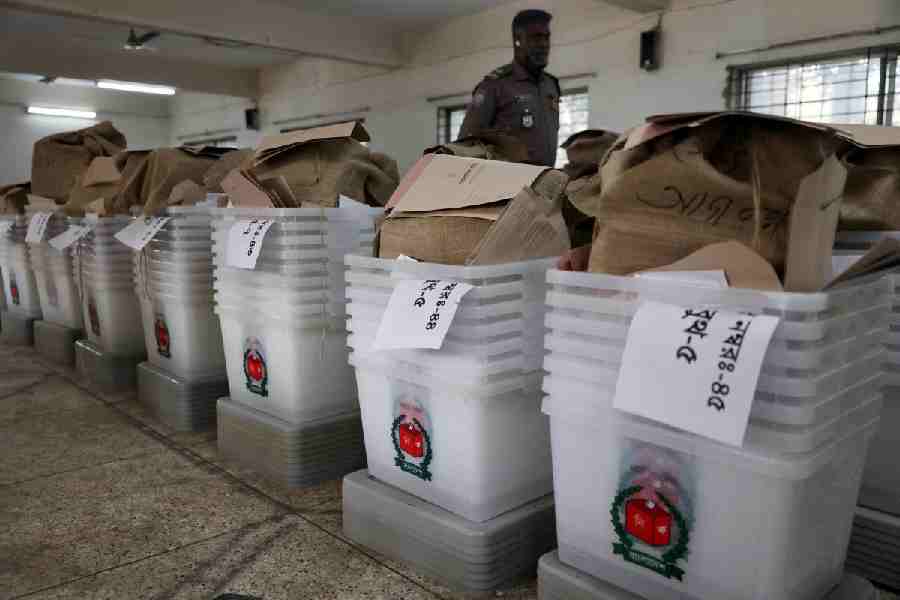 |
| Anil Kakodkar |
New York, Oct. 1: The Bush administration may profess to “help India become a major world power in the 21st century”, but such great power status bestowed on New Delhi clearly excludes any leadership position in organisations like the International Atomic Energy Agency (IAEA) or the UN Security Council.
Even as the nuclear thaw between Washington and New Delhi was in full steam and despite the all-round deepening of Indo-US relations, the Bush administration prevented Anil Kakodkar, the chairman of the Atomic Energy Commission, from being elected chairman of the powerful Board of Governors of the IAEA.
This is revealed in a soon-to-be-published memoir by T.P. Sreenivasan, India’s Governor to the IAEA Board and permanent representative to UN organisations in Vienna for three years from the end of 2000.
Before Vienna, Sreenivasan held the post of deputy chief of mission at the Indian embassy in Washington and had a ringside view of critical American punitive actions against New Delhi following the Pokhran II nuclear tests in 1998 and the subsequent rapprochement between the two sides during the Clinton administration.
India’s turn to head the IAEA Board comes once in eight to nine years and the next test of the mettle and sincerity of America’s friendship with India will come in 2009 when New Delhi is expected to make another bid to chair the Board.
In Words Words Words: Adventures in Diplomacy, Sreenivasan provides a fascinating narrative of how the Bush administration deprived India of its due role in the UN nuclear watchdog and how Pakistan got away in the IAEA with the A.Q. Khan black market business in nuclear material as a result of the American stand.
In 2002, according to Sreenivasan, India announced its candidature for chairmanship of the Board.
By convention, it was New Delhi’s turn to be elected to the post because India is permanent chairman of the group of countries in the IAEA known as MESA (Middle East and South Asia).
As a matter of routine within the UN nuclear watchdog, if there are no challengers from within MESA, its nominee is unanimously elected chairman of the Board for a two-year term.
Those in the IAEA who had not yet reconciled to India’s self-declared status as a nuclear weapons state began a whisper campaign within the organisation that Kakodkar, who was seen in Vienna as the pointman for the 1998 nuclear tests would head the IAEA Board if India got the post.
They saw this as a negation of the IAEA’s role in promoting global non-proliferation. The basis for the anti-India campaign was that in 1994, when India was last elected chairman of the Board, New Delhi nominated Kakodkar’s predecessor, R. Chidambaram, to assume the post.
Sreenivasan said in an interview here that nothing had been decided at that stage about the actual nominee in case India won.
On a previous occasion Vishnu Trivedi, then ambassador to Vienna, was nominated by New Delhi to head the Board when it was India’s turn to be chairman.
To reinforce their campaign, critics of India spread the word that the US would oppose India’s candidature and campaign for someone else from within the MESA group.
The US permanent representative to the IAEA at that time was Ken Brill, former deputy chief of mission in New Delhi who was acting ambassador to India for a considerable period.
Brill, who later went on to be deputy czar of US intelligence under an overarching institutional mechanism created by President George W. Bush after September 11, 2001, had and continues to have a reputation as a friend of India.
So Sreenivasan approached Brill in the hope that he could have a frank exchange with him and get the truth from the horse’s mouth.
Brill “was quite forthright in saying that it was the considered decision of his government (Bush administration)... that they would not like India to have any leadership role in the IAEA because of (the) 1998” (Pokhran tests), Sreenivasan says in his memoir.
“Brill said that nothing had changed as far as their position on the (Indian nuclear) tests was concerned. India should not have done it and it was the US view that India’s (nuclear) status would not be recognised”.
Realising that Washington would oppose New Delhi, the government quietly dropped out of the race.
History may have been different if Kakodkar had been elected. The US supported Kuwait for the post and the latter went along with whatever the Americans wanted in the run up to the Iraq war in 2003 and on the A.Q. Khan nuclear black market.











